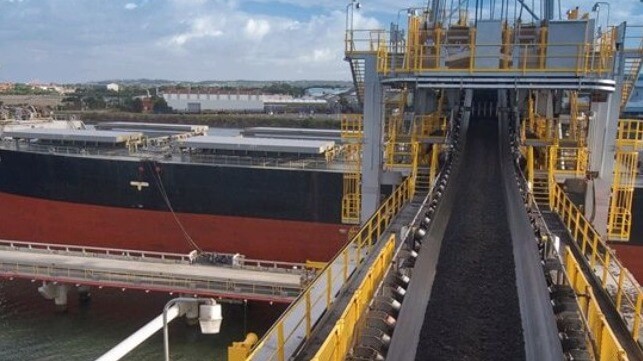EPS Incorporates Cargo Into its CO2 Goals, Banning All Coal

Eastern Pacific Shipping has formalized a practice of not carrying coal cargoes aboard its bulkers, and it believes its decision could be a model for expanding the industry's decarbonization objectives.
Eastern Pacific moves about 26 million tonnes of bulk cargo aboard its 30-plus bulkers every year, but it hasn't moved any coal since April 2020. It has now codified this business pattern in a "no coal cargo" policy, it announced Tuesday.
In its annual ESG report, Eastern Pacific noted that the parties to the COP26 conference agreed on language to encourage a phase-out for coal, the most carbon-intensive fossil fuel. "To support this transition, vessels commercially managed by EPS will follow a 'No Coal Cargo Policy,'" the company said. "EPS hopes to play a small role in making the commodity no longer economically viable, therefore increasing the demand for greener options."
This is an unusual decision for a bulker operator, since coal is one of the three major bulk cargoes. But perhaps its most unusual element is the decision to address the climate impact of a cargo of any kind. For tankers and coal-carrying bulkers, the carbon in the cargo far outweighs the carbon in the bunker tanks, and both end up as CO2 because of the voyage - but only the bunker-related emissions are counted for ESG purposes.
EPS' decision departs from this convention, at least for the bulker segment of its fleet. "EPS’ No Coal Cargo Policy . . . aims to be a message to the maritime industry that decarbonization isn’t exclusive to how we move ships - what we move also matters," the company said.
The new "no coal" policy does not address end-use emissions from oil or petroleum cargoes, which will still be carried aboard EPS' sizeable tanker fleet.
